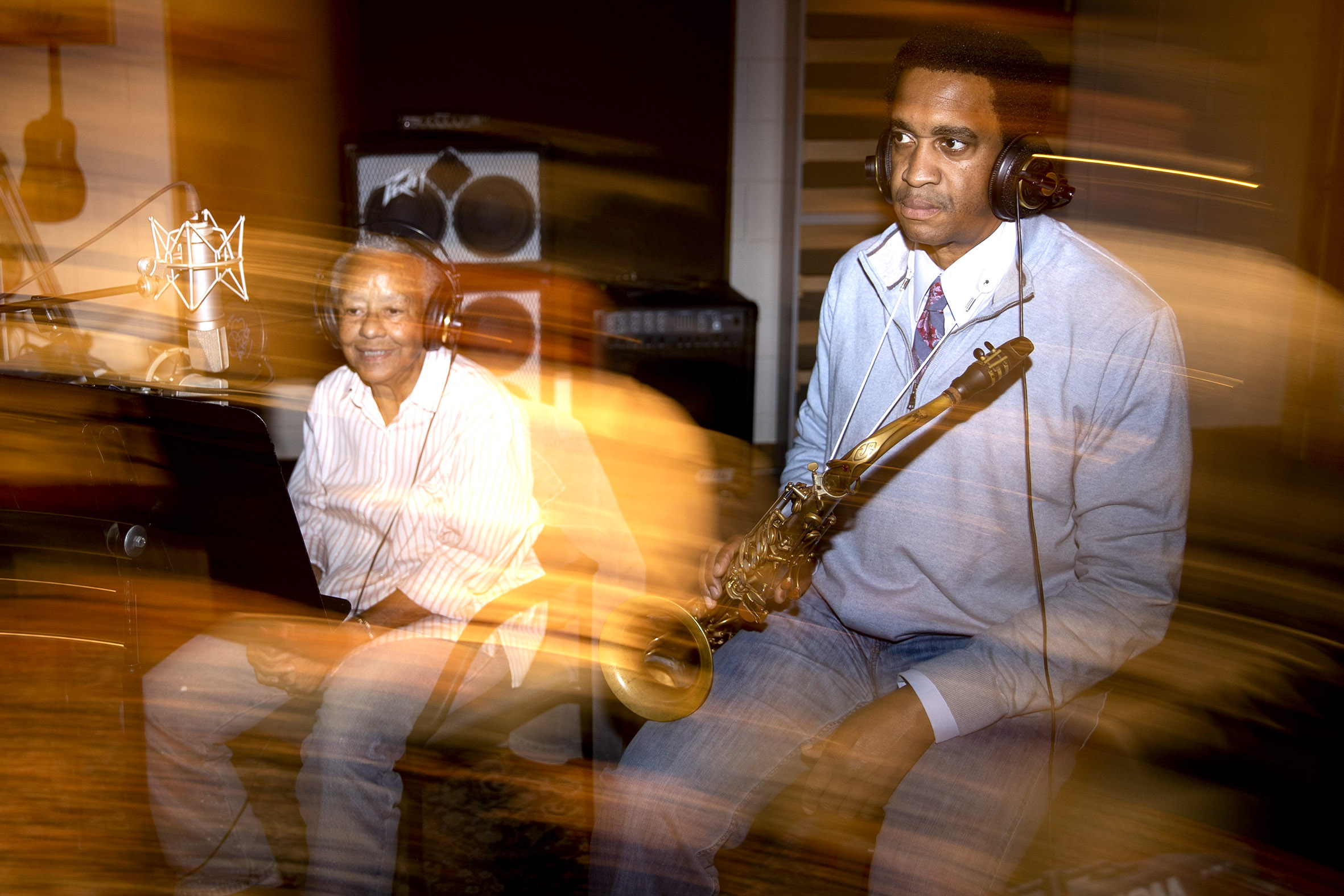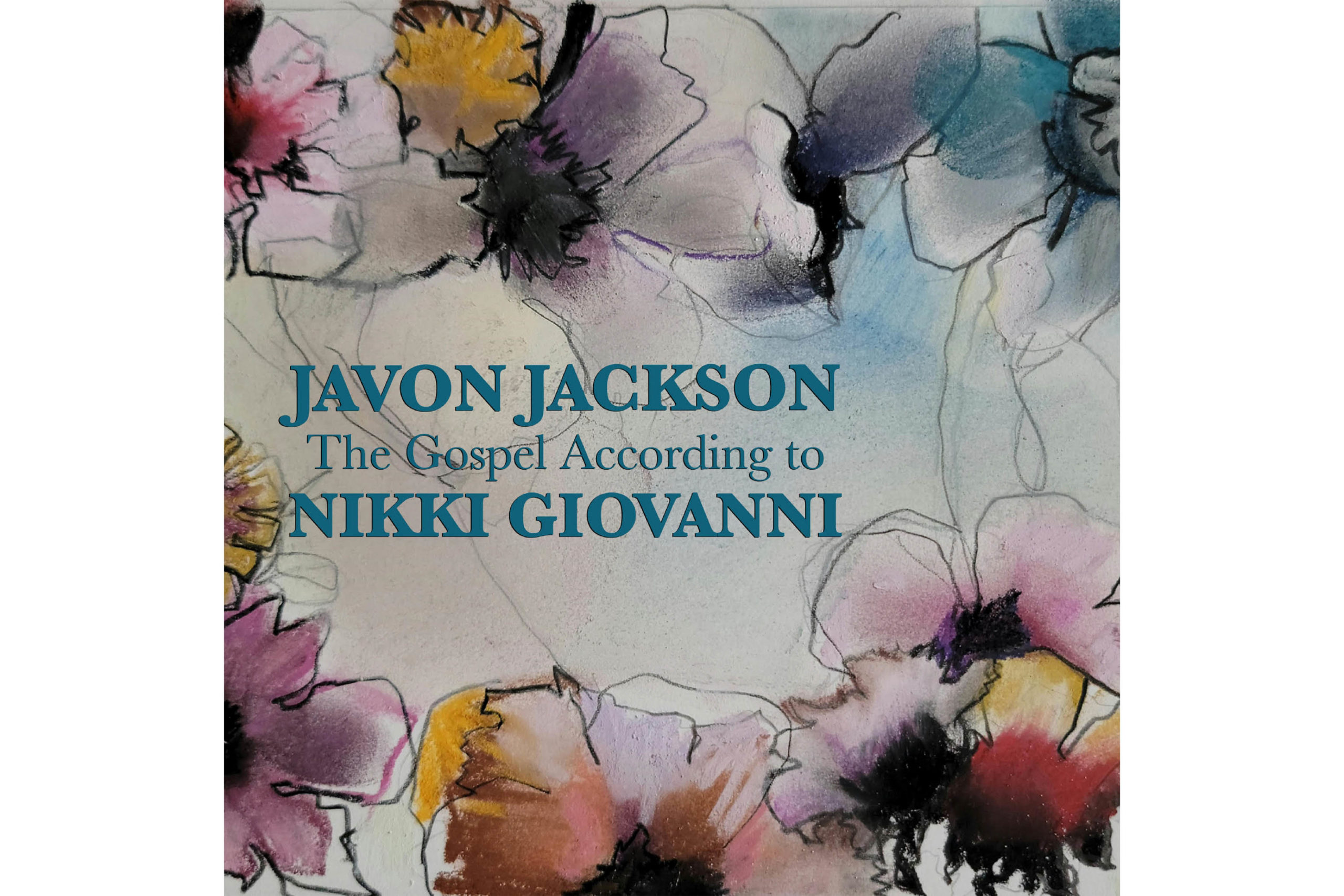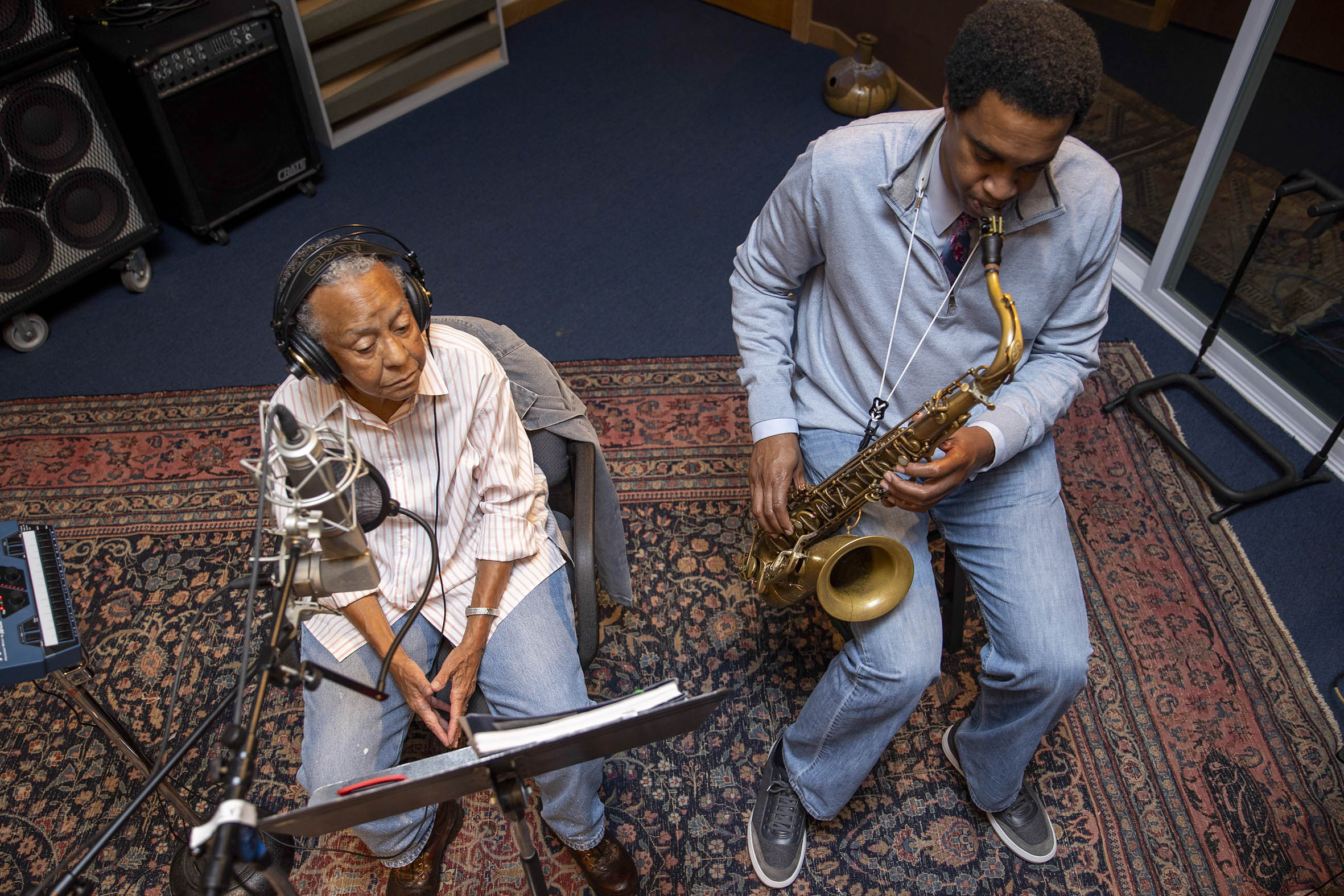Nikki Giovanni’s gospel is pure spiritual bliss
The collaborative album between the poet and saxophonist Javon Jackson is inspired by the music that has sustained Black communities through generations.
Author:
10 February 2022

A believer might see divine hands at work. The first time jazz saxophonist Javon Jackson and accomplished poet Nikki Giovanni met, the album Come Sunday was being piped through the auditorium. “So she mentioned, ‘Wow, I love that music.’ We talked, and later it was just a simple what do you think? I thank God for that,” reflects Jackson. “It’s the unexpected that cannot be explained.”
The outcome, more than a year later because of Covid-19 delays, is the album The Gospel According to Nikki Giovanni, officially released on 18 February. The 10 tracks focus on historic spirituals and include Giovanni singing Night Song “for my friend Nina Simone”.
In a video interview, the two couldn’t present more contrasting presences. Giovanni is slight, intense and bubbling with excitement about the album while Jackson is solid and calm. What they share is a passion for the spiritual music that has sustained Black communities through slavery and struggle up to today.

Jackson confesses that though he loves the music, he hadn’t studied it before. But the Covid lockdown presented an opportunity for intensive listening, “as much as I’ve listened to Charlie Parker”, which renewed his admiration for both its singers and originators. And although he only met Giovanni that year-plus ago, he has admired her for much longer: “She’s kind of like a Miles Davis.”
The comparison isn’t hyperbole. Giovanni, now a professor at Virginia Tech in the United States, has received multiple awards, from a Grammy nomination to accolades stretching from the National Association for the Advancement of Colored People to Oprah Winfrey. A leading figure in civil rights campaigns and in the Black Arts Movement of the mid-1960s to 1970s, she established Cincinnati’s first Black Arts Festival in 1967. She has published multiple volumes of poetry, children’s books and commentary as well as her research on spirituals in the 2007 On My Journey Now: Looking at African-American History Through Spirituals.
The Gospel According To Nikki Giovanni isn’t her only recent record. Her 1971 Truth Is on Its Way and two other landmark poetry albums were reissued in late 2021.
The power of the collective
After their conversation, Jackson asked Giovanni to send a selection of 10 spirituals she admired. Hearing them, he sought perspective on their meaning and ideas about arranging them for quartet (with longtime collaborators pianist Jeremy Manasia, bassist David Williams and drummer McClenty Hunter). Though Giovanni modestly says the project developed because she had “the good sense to stay out of the way – he’s the musician”, their conversation reflects the deep mutual respect powering the work.
Both see it as a collective project. Giovanni, drawing a metaphor from her favourite card game, bid whist, says it’s “about trust … we trusted each other to say let’s play this hand and see how it’s going to work out”. A lifelong jazz fan (and particularly fond of the voice of the saxophone), she tells her students to listen to jazz, however unfashionable they might think it, “because you learn from hearing where a new voice comes in, where the story changes, how contradictions get dealt with … and spirituals are the root of jazz”.
Jackson observes: “If you want to know what a democracy is, go watch a jazz group.” He compares the jazz group to a body, with the bass as the heartbeat, the piano as the vision and the drums as the legs. “Us other instruments, we’re the clothes – we give it the style – but the bottom line is [to work] it has to be a democracy. So when Nikki came into the studio she gave her part, which made as much sense as my part, which made as much sense as the piano: connection … that true sense of democracy.”

Those politics echo the message of the songs themselves. For Jackson, his music can only carry effective messages when it is honest. It’s about truth and, in all hard times – from slavery and racism to Covid – the truth of spirituals is “comfort … The folks that originally came up with these songs were trying to add a process for comfort in the times they were going through – people being taken from one another, treated badly for no reason.”
One aspect of that process is storytelling. “All the great vocalists I love are storytellers, whether Nina Simone or Billie Holiday or Sarah Vaughan,” says Jackson. That’s equally true, he says, of Giovanni’s singing on Night Song, despite her protesting that she’s really not a singer. “Absolutely she is singing … and the composers of these spirituals, even when we don’t know who they were, they’re storytellers too.”
“Yes!” interjects Giovanni.
Letting the melody speak
To foreground the stories, the musicians took a deliberate decision to foreground melody. A graduate of Art Blakey’s Jazz Messengers, Jackson has recorded at least 20 albums as leader, in styles from classic to risky. (He also took the lead saxophone solo on Flying Home in the Roseland scene in Spike Lee’s movie Malcolm X.) “But sometimes as jazz musicians we can get self-indulgent … all these hypotheses that we have in the laboratory, we want to bring them out – boom! – to the audience and can get a little lost. But on these songs I never wanted anything to be above the melody. I hoped that at the end people would say, ‘What a fellowship, what a love, what a joy.’ Because if I was in a room with 500 devout Christians – or with my and Nikki’s grandmothers – what could we do to put a smile on their faces? The best way is, stay with the melody.”
That choice of radical simplicity in arrangement makes The Gospel According to Nikki Giovanni an intimate, moving journey. These are never merely spirituals “jazzed up” with predictable effects; the emotions come straight from the heart. There are, though, enough imaginative jazz solos from all concerned, including Manasia on Wade in the Water and a gorgeous arco bass intro from Williams to I’ve Been ’Buked, to keep the less religiously inclined satisfied too.
That last song well illustrates Giovanni’s assertion that “any of my work is going to have the history in it”. Not so well known in South Africa, the song I’ve been (Re)buked made the world stage when Mahalia Jackson sang it at the 1963 Civil Rights March on Washington. Its message, says Giovanni, speaks equally to the prejudices and stereotyping of today.
“I love it because even today there’s nothing more talked about than being a Black American.” She cites the scorn she sees even in cartoons. “I hear and hate, for example, that line that all men are lazy. There’s no such thing as a lazy slave … and most men – most men and women – I know today are working several jobs. Right now, you can hear some Republicans saying why don’t they take a job? What? You think they’re waking up in the morning saying ‘I’m not gonna work’? People are trying to get something done, but they too have been ’buked and they’ve been scorned.”
Closing the conversation, Jackson stresses how important it has been for him to “walk with Nikki, because nobody has done such serious life’s work around spirituals”. The poet, for her part, grabs the chance for a shout-out to South Africa about Hugh Masekela, whom she knew when he lived in the US. “I know he’s in heaven now,” she says, “but you produced one heck of a fine jazz musician.”
